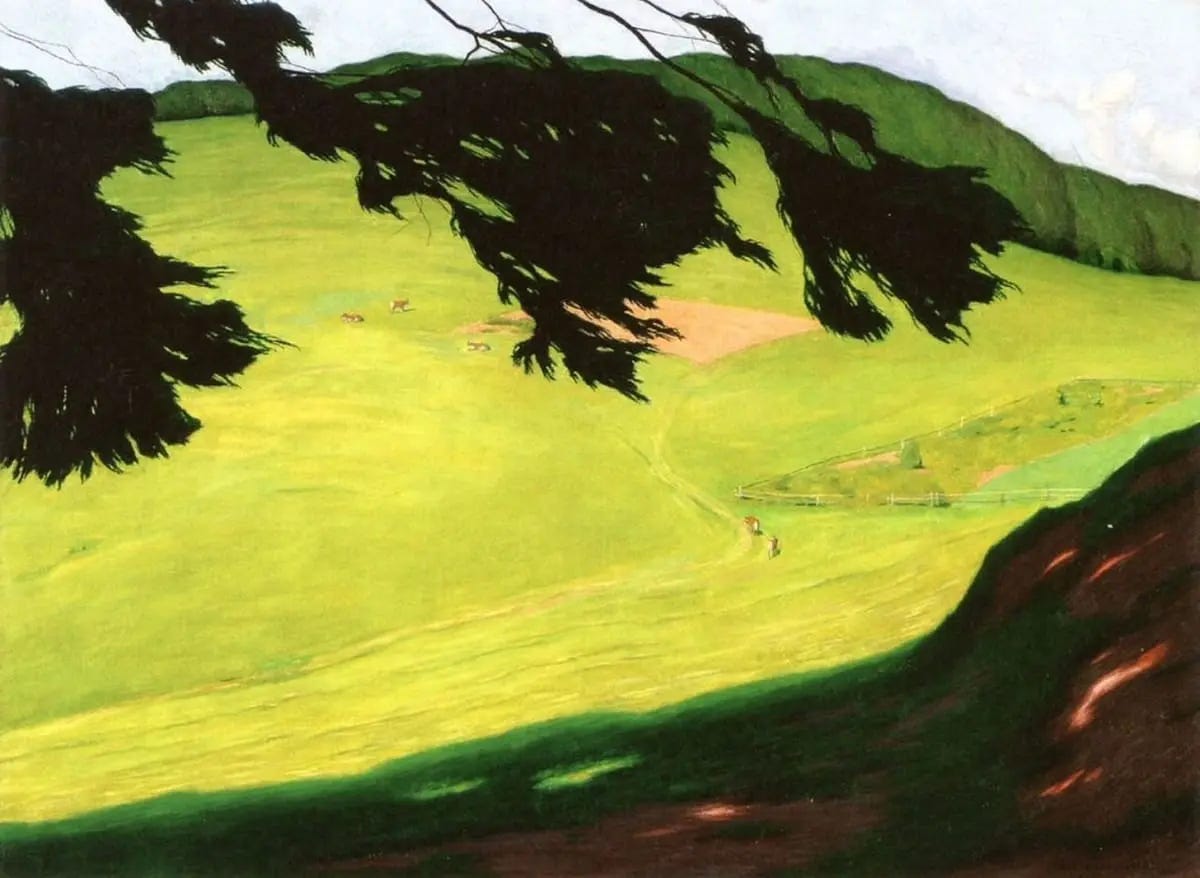-Vincent van Gogh - Green Wheat Fields, Auvers (1890)
Brain like Berkeley
I’m pretty sure my favorite college professor doesn’t even know I exist.
And I’m certain he has no idea how drastically he changed the course of my life.
I bet I’m one of many.
It’s hard to stay engaged during a 600-person lecture when your top priorities are… well, I actually couldn’t tell you. My frontal lobe was underdeveloped. But the moment Professor David Presti started speaking, I was transfixed. My brain broke for the better. His class, Brain, Mind & Behavior: Foundational Concepts in Neuroscience, wasn’t just a course. It was a reorientation.
Presti teaches neuroscience at UC Berkeley (as well as workshops at Esalen), but his approach was unlike anything I’d encountered in academia. His lecture titles alone hinted at something larger than the standard curriculum:
Consciousness: Buddhist and Neuroscientific Perspectives
Mindfulness and Meditation
Matter, Mind, Consciousness
Dimensions of Silence in the Human Experience
Neuroscience of Psychedelics
As founder of the Science for Monks and Nuns project, he’s spent years teaching neuroscience to Tibetan Buddhist monks and nuns in India, Nepal, and Bhutan, bridging the empirical with the contemplative, east-meets-west fusion. Presenting EEG data alongside Buddhist traditions? That’s pretty darn cool.
Presti’s work honors knowledge from other traditions as serious inquiry into the nature of mind.
-2020 Solar Eclipse at the Tibetan Nunneries
Dirt Therapy
One day during a lecture on depression, he mentioned SSRIs and the neurochemical lens through which Western psychiatry views mental health.
“If I were depressed,” he said, offhandedly, “I’d go live on a farm. I’d get my hands in the dirt.”
That line embedded itself in my body like a seed. Four years later, I found myself doing exactly that. Packed up, moved to a farm, and arrived at something I hadn’t been able to articulate. Soil, sun, slowness. A reconnection with nature.
-Hans Emmenegger, Sunny meadow, 1904
Honeybee Goggles
Presti’s openness to the ineffable never felt like a rejection of science, but a widening of it. A refusal to look away from what doesn’t fit the framework. He gave me (and so many others) permission to trust our own curiosity about science, and take a radically empirical approach to experience.
There’s a visual he once shared that I often reference: a comparison of how humans versus honeybees see a flower. It was the first bit of proof I’d encountered pointing toward our perception of “reality” as something always filtered through our sensory apparatus. The bee sees something completely different (and equally true).
That subtle cue was an elegant way of saying: objective reality might be more subjective than we realize.
-Human vision (left), simulated bee vision (middle), UV shot (right)
Mind Beyond Brain
His most recent book, Mind Beyond Brain, dives into subjects like near-death experiences, past-life memories, and other so-called “paranormal” phenomena without veering into sensationalism. Instead, it asks: What happens when we take these experiences seriously? What might we learn if we stopped dismissing what we can’t yet explain?
“The dominant worldview of modern science is that everything can ultimately be reduced to the physics of elementary particles. But this perspective has yet to produce a coherent account of consciousness.”
“There is no place in current physical theories for the observer, and yet it is the observer who constructs the theory in the first place.”
Buddhism shows up as both philosophical companion and methodological ally, offering thousands of years of meditative inquiry as a counterpoint to materialist science’s more limited scope. It’s the kind of book that widens the frame, gives scientifically outcasted topics breathing room to exist.
Reading it reminded me that science, at its best, is a practice of curiosity. And that the refusal to look at certain truths doesn’t mean they aren’t there. !!!
[Insert Rilke’s “live the questions” here.]
If you're even remotely curious about the mysteries of consciousness, I can’t recommend Presti’s work enough. It’s a thoughtful, rigorous, and deeply respectful exploration of what lies outside the borders of mainstream neuroscience.
And if you’re a lazy read (welcome again), here’s a video for you to get a sense of his stuff.
Office Hours
I’ve accumulated quite a few questions over the years—well past the statute of limitations on dropping into office hours. For example:
Because of its widely ignored (and often rejected) subject matter, you once referred to Mind Beyond Brain as a kind of “coming out” within the scientific community. How did your peers react and why did you feel called to share these ideas anyway?
Who were your mentors, collaborators, or world-expanders that first led you down the path of uncharted inquiry?
What do you make of the documented "cases of the reincarnation type"—children who report past lives with verifiable details? Is it an invitation to reframe what we think we know about consciousness?
Have you personally experienced anything you cannot explain?
My hope is to have a conversation with him to dive deeper. (hopefully very soon!)
Until then, this is my thank-you note. To the professor who made room for mystery in the method, and handed me questions to live.










